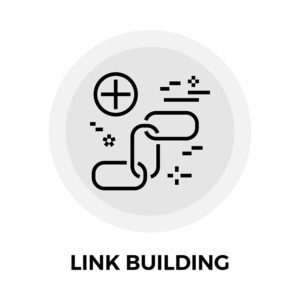Off page SEO is a specific type of search engine optimization that focuses on building links to establish authority and reputation online. Here’s why off page SEO is important for getting organic traffic to your website.
The Basics of SEO: On-Page and Off-Page SEO
In digital marketing, there are two main ways to improve a website’s search rankings: technical, on-page and off-page SEO. There is also a third type, technical SEO, which is a subset of on page SEO. When it comes to on-page vs off-page SEO, here’s what you need to know.
What Is On-Page SEO?
On page SEO, also known as on site SEO, refers to the optimization of main website elements to increase your ranking on search engine results pages (SERPs). By optimizing the title tag, URL, meta description, body text, and image alt attribute of each page on your website, search engines gain a better understanding of what your website is all about.
What Is Technical SEO?
Technical SEO refers to the optimization of technical website elements to increase search visibility. Improving website speed, internal linking structure, and security, as well as removing crawl errors and duplicate content, are examples of technical SEO techniques. These make it easier for search engines to crawl and index your website.
What Is Off-Page SEO?
Off-page SEO, also known as off-site SEO, involves getting links from other websites in order to increase website traffic. The goal is to have established and reputable websites link back to your website. Search engines like Google use the number of inbound links to determine whether a website is authoritative, valuable, relevant, and trustworthy. Offpage SEO is considered the hardest to implement because it takes place outside of a website, meaning it is largely out of your control.
Though all three SEO types are important, this article will focus on the significant role that off page SEO plays in getting organic traffic.
Why Is Off Page SEO Important?
Google is the most popular search engine today with 86.86% of the market share. To increase organic website traffic, you want your website to appear on Google’s SERP.
Google uses a search algorithm to determine the rankings. While this algorithm is constantly changing, links have always been an important and major component in determining the value of a webpage.
If there are many links to your website, Google will assume that you have fresh and relevant content. It will also perceive your website as trustworthy and an authority on the subject. Otherwise, other reputable websites would not be linking to you.
Meanwhile, even if you have the best content, if there are no links pointing to it, it will not rank high on SERPs. Thus, people are less likely to click on your page. That’s why it’s important to conduct offsite SEO. Not only will it help increase organic traffic but it will also boost the effectiveness of your other digital marketing campaigns.
 How Does Off Page SEO Work?
How Does Off Page SEO Work?
Links are the backbone of off-page SEO. However, it’s not just about the number of links. Here are off-page SEO factors that Google considers when ranking websites.
- Number of Referring Domains: How many unique websites are linking to your website? The more backlinks from referring domains, the higher your search ranking.
- Quality of Referring Domains: For Google, backlinks from high-quality or high-authority domains are worth more than low-quality, low-authority domains.
- Relevance of Referring Domains: Backlinks are worth more if they come from websites that belong to the same industry. For example, if you are selling medical equipment, a backlink will carry more weight if it is from a health website — particularly those with .org, .edu., or .gov domains.
- Traffic of Referring Domains: Links from websites that have high organic traffic carry more weight than those from low-traffic websites.
- Nofollow vs. Dofollow Links: Google’s PageRank algorithm does not consider links with a “nofollow” tag. If you want to increase search rankings, make sure that backlinks have a “dofollow” tag.
- Relevance of Anchor Text: Search rankings will be higher for backlinks that have succinct and related anchor text. For example, “examples of off page SEO” is a good anchor text if your content is about off page SEO. However, it is very difficult to control which anchor text other websites will use to link back to you.
What Are the Best Off Page SEO Techniques?
If you’re looking to improve your search rankings and organic traffic, here are effective off page SEO techniques that you can try. It’s helpful to create an off page SEO checklist that you can then incorporate into your overall digital marketing strategy.
1. Build Links Through Content Marketing
The best way to attract links naturally is to create fresh, relevant, and valuable content. Consider creating long-form content such as cornerstone or pillar posts that are rich with information and backed by research. These have a higher chance of attracting natural links. You can also offer other types of content, such as photos and infographics, that other websites can use. Links will come naturally as they credit your website for the shared content.
2. Build Links Through Guest Blogging
Guest blogging is a great way to build working relationships with other websites. You can reach out to websites that cater to the same target audience or exist within the same industry but are not your competitors. You can offer them the same opportunity as a potential incentive.
When creating a guest blog post, the focus should not be on building links or advertising your business. Rather, the main focus should be on creating content that the readers will find helpful and informative. Then, naturally link back to articles on your website that they may find relevant. A few links should be appropriate to avoid spamming or overwhelming the readers.
3. Increase Social Signals and Brand Mentions
 Google also uses brand mentions and social signals to determine your authority or legitimacy. Branded searches on Google and brand mentions on social media — even those without links — can increase your search rankings.
Google also uses brand mentions and social signals to determine your authority or legitimacy. Branded searches on Google and brand mentions on social media — even those without links — can increase your search rankings.
As such, continue engaging with your target audience on social media platforms like Facebook, Twitter, and Instagram. You can share valuable content to generate likes and shares and offer great customer support.
Businesses may even want to consider influencer marketing or professional networking to help spread the word about your products or services.
4. Optimize Your Google My Business Profile
If you want your business to show up on search queries with local intent, it’s important to have a Google My Business (GMB) profile.
Make sure to include all relevant information such as contact details, business address, services offered, and operating hours. You can also include photos, relevant posts, and offers and promotions. Using relevant keywords is also essential in optimizing your GMB profile.
5. Send Out Press Releases
Press releases are a great way to earn authority links. You can send them out whenever you have new products or services, or if there is an important announcement to be made.
Press releases will typically include a brand mention and a link to your website. As the press release is circulated, other websites may potentially talk about it on their website. This, too, will create brand mentions and backlinks.
Getting Started on Off Page SEO
Though off page SEO is just one part of your search marketing strategy, you can see how integral it is to drive organic traffic to your website. As you get started on off-page SEO, consider the factors that Google’s search algorithm uses to determine rankings. Also, it’s important to stick to white hat SEO techniques to avoid being penalized by Google.
Need offpage optimization to improve your SEO rankings? Do not hesitate to reach out to Tanner Grey today! Call us at 844.500.1339, email us at web@tannergrey.com, or contact us online to learn more about our off page SEO services.
RELATED ARTICLES:
- Small Business SEO: Getting Started On Optimization
- Content Marketing Guide: Everything You Need To Know To Get Started
- Embrace the True Efficacies of Online Brand Marketing







